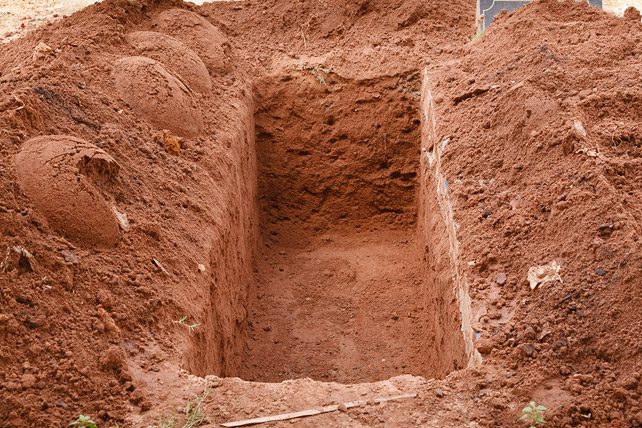What started as a new dishwasher turned into an expensive kitchen remodel. When we pulled our broken dishwasher out of its happy spot, nestled under our cabinets, we soon discovered a rotting floor. We had mold.
We decided to keep pulling up floor, tile, cabinets, walls, whatever, until there was no more mold. We came to a stop when we got to our bay window area over the kitchen sink. The whole wall, studs and all, was covered in mold. That outside wall had to go.
When we got further into the project we discovered an even bigger problem. The issue which gave rise to all of our problems was a faulty foundation. Apparently cinder blocks holding hands does not a foundation make, especially when there is no drain to move water away from the house.
I could have rebuilt without touching the foundation. We could have kept fighting all the battles above the surface, and maybe even won a few of those. But it would only be prolonging the inevitable. Once the foundation is surrendered the whole thing will eventually give way.
The same is true with our Christian response to current issues of sexuality. I would argue that we are “losing” these battles because we surrendered the foundation long ago. We don’t have a leg to stand on. Today, I’ll explain one of these foundations.
‘Just Throw Me in a Ditch!’
I’ve heard more than a handful of Christians joke that they don’t care what happens to their body after death. “Just throw me in a ditch,” they’ll say, “I’ll be in heaven with Jesus.” The idea is that our earthly body is just like a tent you’d take for a weekend camping trip—it’s only temporary. But it’s also kind of an icky and dilapidated tent that gives us all kinds of problems.
Undoubtedly, such language is taken from 2 Corinthians 5. Here Paul refers to the body as a “tent.” And he says that our preference would be “away from the body and at home with the Lord.” In other words, when I’m home with Jesus just throw that tattered old tent in the ditch.
But is that really what Paul is arguing?
If he is, it would go against not only his Jewish upbringing but also the early church. Jewish tradition completely rejected the idea of cremation and stressed a need for burying the dead. It was sign of dignity and showed the worth of the created body. Rather than moving away from this tradition, the early church continued in this.
Let’s briefly go to Paul again. Notice 1 Corinthians 15:3-4: “For I delivered to you as of first importance what I also received: that Christ died for our sins in accordance with the Scriptures, that he was buried, that he was raised on the third day in accordance with the Scriptures…” (emphasis mine).
Why does Paul add “buried” in there? I mean, if he died and was resurrected, isn’t it kind of redundant? And why does John tell us all about Nicodemus and Joseph of Arimathea and the tomb that Jesus was placed in?
For one, it’s to show that He was truly dead and truly resurrected. But it’s also to show us that Jesus was buried as a king. What happened to his body mattered. Because the body matters—even in death. A buried Savior is just as much a part of the gospel as death and resurrection.

